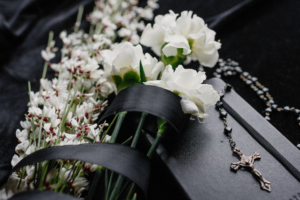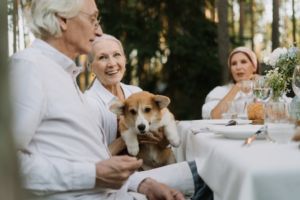I. Introduction
Imagine the moment when you are invited to stand up and deliver a eulogy for your beloved family member or close friend. You want to pay tribute to their life, honor their legacy, provide comfort to those in attendance, and share stories that capture the essence of who this person was. But at the same time, you’re feeling overwhelmed with the task of putting into words all the emotions, memories, and love that you’d like to express. How can you capture it all in one eulogy?
The task of writing a eulogy is often challenging for many people, as it requires them to express emotions, memories, and love. It can be difficult to all these feelings into just one, especially for those who are not familiar with how to write a eulogy. Lots of times people don’t know where to start, are uncertain of the eulogy’s length or structure and feel overwhelmed by their emotions.
We understand writing a eulogy can be an overwhelming task, and it’s natural to feel lost when trying to express all the emotions, memories and love you have for your loved one. That’s why we’ve created this ultimate guide on how to write a eulogy – so you can pay tribute to their life in the most meaningful way possible.
- I. Introduction
- II. What is a Eulogy?
- A. Definition and origin of the term “eulogy”
- B. The role of eulogies in funerals and memorial services
- C. Different types of eulogies
- When writing a eulogy, it is essential to consider the personality and preferences of the person being memorialized, as well as the expectations and emotional needs of the audience attending the funeral or memorial service.
- III. Preparing to Write a Eulogy
- IV. Crafting a Meaningful Eulogy: Step-by-Step Guide
- V. Tips for Delivering a Eulogy
- VI. Example Eulogies
- VII. Conclusion
- VIII. Explore MemoryCherish’s Eulogy Writing Service
- FAQ
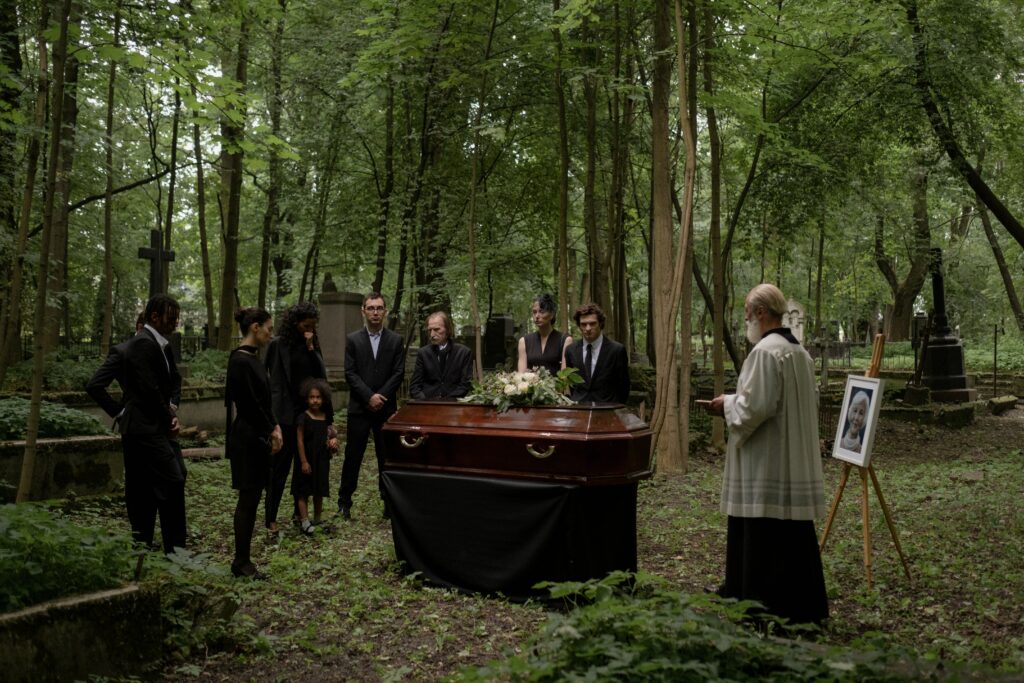
II. What is a Eulogy?
A. Definition and origin of the term “eulogy”
A eulogy is a speech or written piece that pays tribute to a person’s life, typically delivered during a funeral or memorial service. The term “eulogy” originates from the Greek word “eulogia,” which means praise or blessing. In essence, a eulogy is a heartfelt expression of one’s admiration and appreciation for the deceased’s life, celebrating their unique qualities, achievements, and cherished memories.
B. The role of eulogies in funerals and memorial services
Eulogies play a crucial role in funerals and memorial services, as they provide an opportunity for family members, close friends, and loved ones to reflect on the life story of the deceased. A well-crafted eulogy can offer comfort and solace to those grieving by highlighting the positive aspects of the person’s life, such as their selfless humanity, natural nobility, and fond memories shared with them. Furthermore, eulogies serve as a focal point for the memorial or funeral service, bringing together the attendees in remembrance and celebration of the deceased’s life.
C. Different types of eulogies
There is no right or wrong way to write a eulogy, as each person’s life story is unique and deserves a fitting tribute. However, there are various types of eulogies that one can consider when crafting a meaningful eulogy:

Traditional Eulogy
This type of eulogy follows a more formal structure, often including biographical information, achievements, and the deceased’s contributions to their family, community, or profession.
Personal Eulogy
A personal eulogy focuses on sharing personal stories, anecdotes, and favorite memories of the deceased. This type of eulogy often reveals the very essence of the person, shedding light on their character, values, and passions.
Humorous Eulogy
A humorous eulogy incorporates funny stories, light-hearted anecdotes, and amusing memories of the deceased. This approach can be an effective way to celebrate the person’s life while providing some relief from the grief and sorrow experienced during a funeral service.
Thematic Eulogy
A thematic eulogy revolves around a central theme or message that encapsulates the deceased’s life. This could be a particular passion, a significant accomplishment, or a specific quality that defined them.
Combined Eulogy
In some cases, multiple speakers may choose to deliver a combined eulogy, with each family member or close friend sharing their unique perspective and cherished memories of the deceased.
When writing a eulogy, it is essential to consider the personality and preferences of the person being memorialized, as well as the expectations and emotional needs of the audience attending the funeral or memorial service.
Transform Your Memories into a Beautiful Tribute
Writing a eulogy during this difficult time is hard. Our professional writers are here to help you capture your loved one’s essence and life beautifully.
III. Preparing to Write a Eulogy
A. Gathering information about the deceased
1. Personal anecdotes
To write a eulogy that captures the essence of the person’s life, it’s essential to collect personal anecdotes from family members and close friends. These stories can reveal the deceased’s unique qualities, values, and memorable moments they shared with others. Ask relatives and friends for their favorite memories or funny stories involving the deceased, as these can help paint a vivid picture of their life and personality.
2. Achievements and milestones
When preparing a eulogy, it’s also important to gather information on the deceased’s achievements and milestones. These could include educational accomplishments, career highlights, or significant contributions to their community. Including these aspects in the eulogy not only pays tribute to their hard work and dedication but also provides a comprehensive overview of their life story.

3. Hobbies and interests
Incorporating the deceased’s hobbies and interests into the eulogy can help create a well-rounded and relatable portrait of their life. Discussing their passions and pastimes allows the audience to connect with the person on a deeper level, as it reveals what brought them joy and fulfillment outside of their professional or family life.
B. Finding inspiration from other eulogies
Before writing a eulogy, it can be helpful to review eulogy examples or speeches delivered by others. This can offer insight into different styles, tones, and approaches to eulogy writing. For instance, Oprah Winfrey’s eulogy for Rosa Parks, the American civil rights leader, is an excellent example of a powerful and moving tribute. By analyzing various eulogies, you can find inspiration and guidance on how to craft a meaningful eulogy that resonates with the audience.
C. Organizing your thoughts and ideas
Once you’ve collected the necessary information and personal anecdotes, and found inspiration from other eulogies, it’s time to organize your thoughts and ideas. Start by creating an outline or mind map to structure the content of your eulogy. This will help you identify key themes, memorable stories, and significant moments in the deceased’s life that you want to include in your speech.
Consider the flow and pacing of the eulogy, ensuring that it transitions smoothly between topics and maintains a coherent narrative. Remember that the most important thing when writing a eulogy is to create an authentic and heartfelt tribute that honors the person’s life and conveys the impact they had on their family members, friends, and community.
IV. Crafting a Meaningful Eulogy: Step-by-Step Guide
Writing a eulogy can be an emotional and challenging task, but it’s an essential part of honoring the life and memories of a person who has passed away. A well-crafted eulogy allows family members, close friends, and loved ones to celebrate the deceased’s life, share cherished memories, and pay tribute to their unique qualities and values. In this step-by-step guide, we’ll walk you through the process of writing a meaningful eulogy that will resonate with those attending the funeral or memorial service.
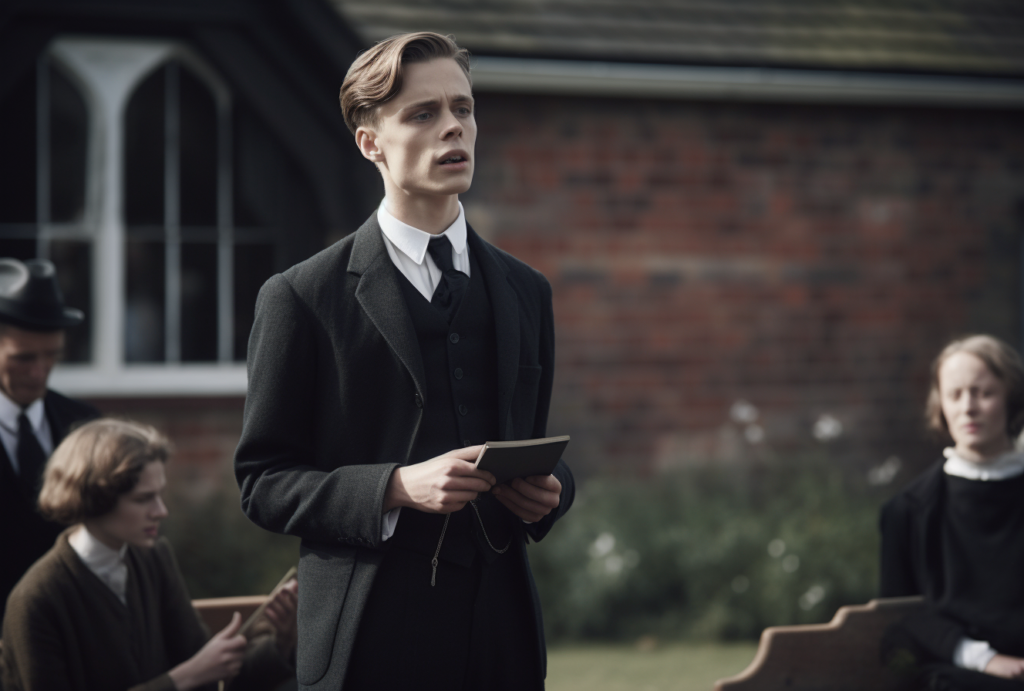
A. Starting with a strong opening
The opening of a eulogy sets the tone for the entire speech and should capture the very essence of the person’s life. Begin by introducing yourself and explaining your relationship to the deceased, whether as a family member, close friend, or best friend. You may also want to start with a quote or personal anecdote that highlights the deceased’s character or values, setting the stage for the stories and memories you’ll share throughout the eulogy.
B. Sharing personal stories and memories
One of the most important aspects of a eulogy is sharing personal stories and memories that celebrate the deceased’s life. Reflect on your favorite memories and speak to other family members and close friends to gather memorable stories, funny anecdotes, and cherished moments. Drawing from old photo albums, letters, and other memorabilia can also help trigger memories and provide inspiration for your speech. Don’t be afraid to share a funny story or two, as humor can help lighten the mood and bring a sense of comfort to those grieving.
C. Highlighting the deceased’s qualities and values
In addition to personal stories and memories, a good eulogy should also highlight the key qualities and values that defined the deceased’s life. Consider what made them special, such as their selfless humanity, natural nobility, or unwavering dedication to a particular cause. This is your opportunity to shed light on the positive impact they had on the lives of others and pay tribute to their contributions.
D. Incorporating quotes, poems, or religious texts
Adding relevant quotes, poems, or religious texts to your eulogy can provide additional depth and meaning to your speech. For example, you might include a favorite song lyric or quote from an American civil rights leader that captures the spirit of the deceased’s life. Be sure to choose quotes or texts that align with the person’s beliefs and values, as well as the tone of the funeral or memorial service.
E. Adding humor, if appropriate
While it’s important to strike a balance between reverence and lightheartedness, incorporating humor in a eulogy can help bring comfort and relief to those grieving. Share a funny anecdote or recount a humorous moment from the deceased’s life that showcases their personality and brings a smile to the faces of family members and friends. Just be mindful of the audience and ensure that any humor is respectful and appropriate for the occasion.
F. Concluding with a heartfelt message
End your eulogy by expressing your love and gratitude for the time you shared with the deceased. Offer words of comfort and support to those attending the funeral or memorial service, and encourage them to hold onto their cherished memories. You might conclude with a final quote, poem, or personal reflection that encapsulates the spirit of the person’s life and leaves a lasting impression on the audience.
In summary, crafting a meaningful eulogy requires careful consideration, empathy, and a heartfelt connection to the person’s life story. By following this step-by-step guide and drawing on your own memories and emotions, you can create a powerful tribute that honors the deceased’s life, comforts those grieving, and celebrates the love and connections that defined their time on Earth.

V. Tips for Delivering a Eulogy
Delivering a eulogy is a significant responsibility that allows you to pay tribute to the life of a loved one, friend, or close relative. It’s natural to feel nervous about speaking in front of family members and friends during a memorial service, but with proper preparation and practice, you can deliver a heartfelt remembrance speech that honors their memory. Here are some tips to help you confidently deliver a good eulogy.
A. Practicing your speech
One of the most important steps in preparing to deliver a eulogy is practicing your speech. Rehearsing helps you become familiar with the words, improve your pacing, and ensure that your speech flows smoothly. Read your eulogy aloud multiple times, focusing on speaking slowly and clearly. If possible, practice in front of a trusted friend or family member who can provide feedback and support. Remember, there’s no right or wrong way to deliver a eulogy, so focus on conveying your genuine emotions and memories.
B. Managing emotions during the delivery
It’s normal to feel emotional when delivering a eulogy, but it’s essential to find a balance between expressing your feelings and maintaining control during your speech. Pause when needed, take deep breaths, and have tissues on hand to manage tears. If you become too overwhelmed, consider asking a best friend or close relative to step in and continue the speech on your behalf. Remember, the most important thing is to honor the memory of the person who has passed away, and your audience will understand and empathize with your emotions.
C. Using visual aids or props, if desired
Incorporating visual aids or props into your eulogy can help illustrate your stories and engage the audience. For example, you might display old photo albums, letters, or other memorabilia that trigger memories of the deceased. These items can also serve as a focal point for your speech and help distract people from their grief. However, be mindful not to rely too much on visual aids, as they should complement your words rather than overshadow them.
D. Engaging with the audience
As you deliver your eulogy, make an effort to engage with the audience by making eye contact and using body language that conveys your emotions. This helps create a connection between you, the deceased, and the audience, making the eulogy more powerful and memorable. Additionally, consider sharing a funny story or personal anecdote that involves or is relatable to those in attendance, as this can help evoke fond memories and foster a sense of community during the memorial service.
In conclusion, delivering a eulogy is a meaningful and important way to honor the life and memories of a person who has passed away. By practicing your speech, managing your emotions, using visual aids or props when appropriate, and engaging with the audience, you can create a moving tribute that celebrates the life and legacy of your loved one. And always remember, the love and connection you shared with the deceased are what truly matter and will live on through your heartfelt words and cherished memories.
VI. Example Eulogies
A. Traditional eulogy example
Ladies and gentlemen, we gather here today under this somber sky, not to mourn, but to celebrate the extraordinary life of a man who was not just a man, but a beacon of light and love in our lives, Mr. Samuel Anderson.
There are few who can claim to have touched as many lives as Sam did. He was a father, a husband, a friend, and a mentor. He was a pillar of strength for his family, an anchor in turbulent times, a soothing balm for troubled hearts.
Samuel was born to humble beginnings in the heartland of our country, in the small town of Springfield, Kansas. The son of a farmer and a school teacher, he learned early the value of hard work, perseverance, and the importance of a good education. These virtues were not just instilled in him but became his guiding principles, the bedrock upon which he built his life.
In his youth, Samuel was not just an exceptional student, but also an accomplished athlete, a testament to his belief in the harmony of mind, body, and spirit. He brought this same dedication and discipline to everything he did, whether it was his job as a civil engineer, his passion for gardening, or his commitment to his family and community.
Samuel met his beloved wife, Martha, at university. Their love story is one for the ages, a testament to the power of love that transcends time and circumstances. For over fifty years, they stood together, not just as husband and wife, but as best friends, partners in all things, a force to be reckoned with. Their love was a beacon that lit up the lives of everyone who had the privilege of witnessing it.
As a father, Samuel was a shining example of what it means to lead by example. He instilled in his children a sense of curiosity, a love for learning, and a deep respect for all living things. He taught them the importance of kindness, compassion, and empathy, values that his children carry with them to this day.
As a friend, Samuel was a rock. He was always there, ready to lend a hand, to offer a shoulder to lean on, to share a laugh or a tear. His door was always open, his heart always ready to welcome you in. He had a gift for making people feel seen, heard, and valued. He made you feel like you were the most important person in the world, not because of what you could do for him, but simply because you were you.
Samuel’s impact on his community cannot be overstated. He was not just a resident of Springfield, but its heart and soul. He served on the school board, volunteered at the local food bank, and was a regular at town hall meetings. He believed in giving back to his community, and in making a difference, no matter how small.
Yet, amidst all these roles, Samuel never lost sight of his own self. He was a man of quiet strength, of unshakeable integrity. He was a man who loved deeply, who laughed heartily, who cried openly. He was a man who was not afraid to show his emotions, to share his fears and hopes, his joys and sorrows. He was a man who lived his life with an authenticity that was both inspiring and humbling.
Today, as we stand here, we are not just remembering Samuel, we are celebrating him. We are celebrating his life, his love, and his legacy. We are celebrating a man who lived his life not for himself, but for others. A man who believed in the power of kindness, the strength of community, and the beauty of love. A man who touched our lives in ways that words cannot fully capture.
Samuel may no longer be with us physically, but his spirit lives on, in the hearts and minds of all those he touched. His spirit lives on in the laughter of his children, the strength of his wife, and the unity of his community. His spirit lives on in the garden he tended so lovingly, each flower a testament to his dedication, each tree a symbol of his enduring strength. His spirit lives on in the bridges he helped build, not just the physical ones that connect towns and cities, but the metaphorical ones that connect hearts and minds.
Every story he told, every lesson he imparted, and every hug he shared, is a thread woven into the fabric of our lives, making it richer, stronger, and more vibrant. And though our hearts may ache with the pain of his absence, we must remember that he is not truly gone. For, as long as we remember him, as long as we live the values he taught us, and as long as we love as he loved us, Samuel Anderson will continue to live.
So today, let us not bow our heads in sorrow, but raise them in gratitude. Let us not shed tears of grief, but of joy for having known such an incredible man. Let us not say goodbye, but thank you. Thank you, Samuel, for the love you shared, the wisdom you imparted, and the memories you left us with. Your legacy will continue to inspire us, guide us, and remind us of the beauty in living a life of purpose, love, and service.
As we bid farewell to Samuel today, let us remember the words he often said to his loved ones, words that embody the spirit of this extraordinary man, “Love deeply, live fully, and leave the world a better place than you found it.” These words, his life’s mantra, are his final gift to us, a compass to guide us as we navigate the journey of life without him.
In the quiet moments, when the pain of loss threatens to overwhelm us, let us find comfort in the knowledge that Samuel’s spirit is now free, unfettered by the constraints of the physical world. Imagine him in his favorite garden, surrounded by the vibrant colors of the flowers he loved so much, under the vast, open sky he found so comforting. He is at peace, and we must find our own peace, knowing he lived a life full of meaning and love.
Samuel Anderson was not just a man, he was a force of nature, a beacon of light in the darkness, a ripple of love that turned into a wave, touching every shore. Today, as we remember him, let us strive to live as he did, to love as he did, and to make a difference as he did. Because that would be the greatest tribute we could ever pay to this remarkable man.
May you rest in peace, dear Samuel. May your spirit continue to shine brightly, illuminating our path forward. You will be deeply missed, but you will never, ever be forgotten. Your life was a blessing, your memory a treasure. You are loved beyond words and missed beyond measure. Goodbye, dear friend, until we meet again.
B. Personal eulogy example
Ladies and Gentlemen, friends, and family, we gather here today to honor the life and legacy of a woman who was not just a mother, a grandmother, a sister, and a friend, but a constant source of inspiration and love. We are here to remember, to celebrate, and to mourn the loss of our beloved Dorothy “Dot” Turner.
Dot was… well, she was just Dot. If you knew her, you understand what I mean by that. There was something about her that was larger than life, yet so incredibly down-to-earth. She was a woman who had the remarkable ability to see the extraordinary in the ordinary, who found joy in the simple things in life, and who was, without a doubt, the most tenacious person I have ever known.
Born in the bustling heart of Detroit, Dot was the middle child of five siblings. She wasn’t born into wealth or privilege. Yet, in the modest little home on Maple Street, Dot’s parents instilled in her something far more valuable than material wealth: the ability to dream big, work hard, and never give up. They taught her that kindness was a currency that never devalued and that laughter could heal wounds you didn’t know you had.
After graduating from high school, Dot attended Michigan State University, where she studied psychology. She was fascinated by the human mind, by the power of thoughts and emotions. But it wasn’t just the academic side of psychology that intrigued Dot; it was the practical, everyday application of it. She believed that understanding people, and truly seeing them for who they are, was the key to building strong relationships and communities.
It was at university that she met the love of her life, our dear departed Jack. Theirs was a love story that spanned half a century, a love that was as steady and reliable as it was passionate and exciting. Together, they built a life, a family, and a legacy that we are all a part of today.
As a mother, Dot was nothing short of extraordinary. She wasn’t just a parent, but a friend, a confidante, a role model. She taught her children to be curious, to be brave, to be kind. She taught them that failure was just another stepping stone on the path to success, and that it was okay to make mistakes as long as you learned from them. She held their hands when they needed guidance, she stood behind them when they needed support, and she let them go when they needed to fly.
Dot was a woman of many passions. She was an avid reader, a talented cook, and an extraordinary gardener. Her garden was her sanctuary, a place where she found peace and solace. Each plant, each flower was a testament to her love and care. She nurtured them with the same love and care she gave to her family and friends.
Dot’s contribution to her community was immense. She served as a counselor at the local high school, touching the lives of countless young people. She volunteered at the local soup kitchen, offering not just meals, but a listening ear and a warm smile. She was instrumental in establishing a community library, a testament to her love for books and education.
Today, we are not just mourning the loss of Dot, but celebrating her life, her spirit, her legacy. She was a woman who lived her life with purpose, with passion, with love. She touched our lives in ways that words cannot fully express. She left an indelible mark on our hearts, a mark that will continue to inspire and guide us, even in her absence.
Dot was not a woman who would want us to grieve for long. She would want us to celebrate her life, to remember the good times, the laughter, the love. She would want us to take the lessons she taught us, the values she instilled in us, and apply them in our lives. She would want us to carry on her legacy, not through grand gestures, but through everyday acts of kindness and love.
In the quiet moments, when we miss her the most, let us remember Dot for who she was: a woman of strength, of courage, of love. Let us remember her infectious laughter, her sparkling eyes, her warm hugs. Let us remember the way she could light up a room with her presence, the way she could lift your spirits with just a few words.
Our hearts may be heavy today, but we must remember that Dot is at peace now. She is reunited with her beloved Jack, in a place where there is no pain, no suffering, only love and peace. She is watching over us, her spirit guiding us, her love enveloping us.
I have no doubt that Dot is somewhere out there, tending to a beautiful garden under a clear, blue sky. She is laughing, she is loving, she is living. And she is waiting for us, not with sadness, but with joy, for the day when we will meet again.
Dot, you were a beacon of light in our lives, a source of constant love and inspiration. Your spirit, your love, and your legacy will live on in us, in our children, and in the lives of everyone you touched. You may be gone from our sight, but you will never be gone from our hearts.
As we bid you farewell today, we do so with heavy hearts, but also with a deep sense of gratitude. Gratitude for having known you, for having loved you, for having been a part of your extraordinary journey. Thank you, Dot, for everything.
So, let’s remember Dot as she would have wanted us to. Let’s remember her with love, with joy, with gratitude. Let’s remember her not just as the woman she was, but as the spirit she continues to be. Let’s remember her as the woman who loved deeply, laughed heartily, lived fully, and left an indelible mark on our lives.
We love you, Dot. We miss you. We are grateful to you. And while our hearts ache with your absence, they are also full of the love you gave us, the memories you left us, and the legacy you entrusted us with. Until we meet again, dear Dot, rest in peace, knowing that you were, and always will be, deeply loved, cherished, and remembered.
C. Humorous eulogy example
Ladies, Gentlemen, and those of you who knew our dearly departed friend, Harold “Hal” Fisher, well enough to resist such formal titles, we gather here to celebrate the life and times of a man who, in his own words, was “too busy living to worry about dying.”
Hal was a unique character – part philosopher, part jester, and wholly unforgettable. He was born and raised right here in Austin, Texas, and he was as proud of his Texan roots as he was of his infamous chili recipe, a concoction so spicy it’s been banned in three states and is considered a potential alternative to rocket fuel.
Hal’s early life was anything but ordinary. He was the only son of a rodeo queen and a rocket scientist – an unlikely pairing that resulted in a man who could lasso a calf and calculate the trajectory of a spacecraft with equal precision. He attended Texas Tech, where he majored in “Life, with a minor in Mischief,” as he used to say.
After college, Hal found his calling as a high school physics teacher. And by ‘calling,’ I mean the universe’s sick sense of humor. Picture a man who believed that the laws of gravity were more guidelines than actual rules teaching impressionable minds. I’m sure more than a few of his students are in the audience today, still wondering how that homemade potato cannon demonstration was supposed to illustrate Newton’s Third Law.
And let’s not forget the love story that was Hal and Linda. They met at a country fair, and Hal won Linda’s heart by winning her a teddy bear at a shooting range – which sounds romantic until you learn that Hal was actually aiming for the duck pond game next to it. Still, Linda took the bear, and Hal’s heart, and they spent 45 glorious years together, raising two wonderful kids, half a dozen dogs, and one very confused parrot.
As a father, Hal was… well, let’s just say that ‘conventional’ was not a word in his parenting handbook. His philosophy was, “Why tell kids about the world when you can show them?” This led to some memorable family vacations, including a trip to the Grand Canyon on a unicycle, and that unforgettable visit to New York City where they only communicated through interpretive dance.
In his later years, Hal developed a passion for the harmonica. I use the word ‘passion’ here because ‘noise pollution’ would probably be legally actionable. He loved to serenade his neighbors at all hours with his unique renditions of classic blues hits. And by ‘serenade,’ I mean ‘torture,’ and by ‘unique,’ I mean ‘barely recognizable.’
But let’s not forget Hal’s charitable spirit. He was a staple at local fundraisers, where his legendary chili was auctioned off to the bravest (or most foolhardy) souls. And despite the gastrointestinal distress it caused, it raised significant funds for many a worthy cause.
Today, we’re not here to mourn Hal but to celebrate him. To remember his zest for life, his infectious laughter, his irrepressible spirit. Hal was a man who lived life on his terms, who saw the world not as it was, but as it could be – funnier, kinder, more colorful.
In his honor, let’s not bow our heads in sorrow, but raise our glasses in celebration. To Hal, the man who taught us to laugh in the face of adversity, to find joy in the ordinary, to live each day as an adventure. He may not be here in body, but his spirit, his laughter, his love, will always be with us.
So here’s to you, Hal. The world is a little less bright, a little less funny without you. But your spirit, your joy, your incredible chili recipe – they live on in all of us.
Our hearts may be heavy today, but there’s a part of us that’s smiling too, because we had the privilege of knowing you, of loving you, and of being a part of your wildly extraordinary journey. You left us with so many stories, so many memories, so many laughs, and for that, we are eternally grateful.
Remember folks, this is Hal we’re talking about. He wouldn’t want us crying or being glum. No, he’d want us to celebrate. To laugh at the good times, to remember the joy and the love. He’d want us to keep living, keep laughing, keep dancing to the tune of our harmonica – even if we’re as off-key as he was.
Hal, you were a hurricane of hilarity, a typhoon of tenderness, a whirlwind of whimsy. You brought laughter and love wherever you went, and our world is richer, brighter, and so much funnier because of you.
So, here’s to you, Hal. To your wild dreams and your daring adventures. To your laughter that could brighten even the darkest days. To your heart that was big enough to love us all. You might have left this world, Hal, but you haven’t left our hearts. You’re still here, in every joke we tell, in every song we sing, in every chili cook-off we bravely enter.
We love you, Hal. We miss you. And we promise to keep your spirit alive, to keep laughing, to keep loving, to keep living with the same joy and passion that you did. Because that’s what you would have wanted. Because that’s the way you lived your life.
So, until we meet again, dear friend, rest in peace. Know that you were loved, you are missed, and you will always, always be remembered. You were one of a kind, Hal, a true original. The world was lucky to have you, and so were we. So here’s to you, Hal. Thanks for the laughs, the love, and the lessons. We’ll see you on the other side. And please, for the love of all that’s holy, don’t try to cook in heaven’s kitchen. They won’t know what hit them.
Goodbye, dear, Hal. You’ve left an indelible mark on our hearts, and a chili stain on our favorite shirt. But that’s okay, because every time we see it, we’ll remember you, your laughter, your love, and your undeniable zest for life. Thank you, Hal. For everything.
VII. Conclusion
A. The impact of a well-written eulogy on the grieving process
The power of a well-written eulogy cannot be underestimated. As you share heartfelt memories, and personal anecdotes, and pay tribute to your loved one’s unique qualities, you provide comfort and solace to those grieving the loss. A beautifully crafted eulogy helps friends and family members come together in remembrance, fostering a sense of unity and healing. By taking the time to create a memorable and meaningful tribute, you not only honor the life of the deceased but also support the emotional well-being of those left behind.
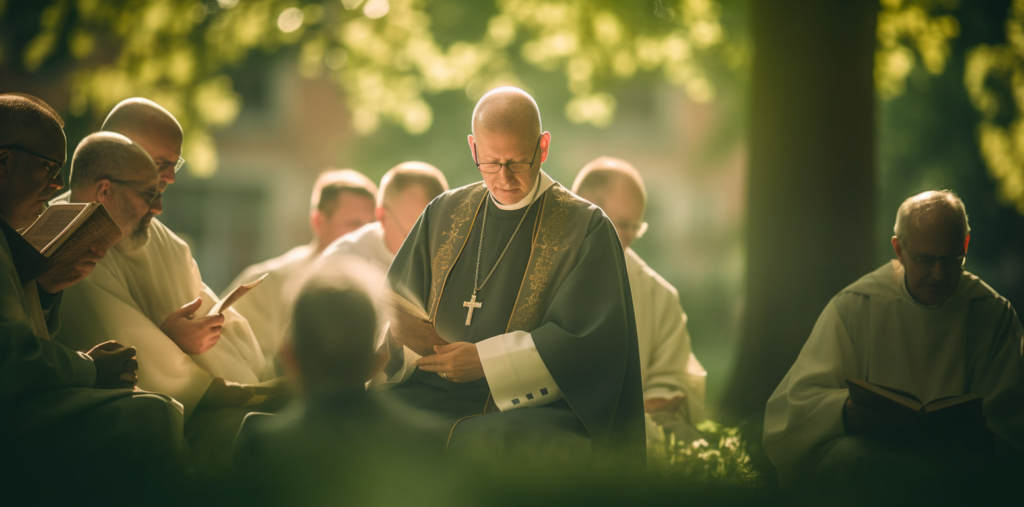
B. Encouragement to create a memorable tribute for your loved one
We encourage you to embrace the opportunity to create a lasting tribute that celebrates the life and legacy of your loved one. By sharing stories, honoring their values, and expressing your love, you create a powerful and enduring testament to their impact on the lives of others. Allow your heart to guide you as you craft a eulogy that embodies the spirit of your loved one and brings solace to all who hear it.
VIII. Explore MemoryCherish’s Eulogy Writing Service
At MemoryCherish, we understand the challenges and emotions that come with writing a eulogy. Our compassionate team of professional writers is here to support you in creating a heartfelt and memorable tribute that honors your loved one’s life and legacy. With our eulogy writing service, you can trust that your loved one’s story will be told with care, empathy, and eloquence.
We invite you to explore MemoryCherish’s eulogy writing service and allow us to help you create a lasting and meaningful tribute that brings comfort and healing to all who hear it. Find out more about how we can support you during this difficult time. Together, we will celebrate the life, love, and memories of your cherished loved one.
FAQ
Q: What is an example of a eulogy?
A: An example of a eulogy is a heartfelt speech delivered at a funeral or memorial service that shares personal stories, memories, and anecdotes about the deceased, highlights their qualities and values, and pays tribute to their life and legacy.
Q: What should I say in a good eulogy?
A: In a good eulogy, you should share personal stories and memories about the deceased, highlight their unique qualities and values, incorporate relevant quotes or poems, add humor if appropriate, and conclude with a heartfelt message expressing your love and gratitude for the time spent together.
Q: How does a eulogy usually start?
A: A eulogy usually starts with a strong opening that introduces the speaker and explains their relationship to the deceased. It may also begin with a quote or personal anecdote that captures the essence of the person’s life and sets the tone for the rest of the speech.
Q: What is in a eulogy?
A: A eulogy typically includes personal stories and memories about the deceased, highlights of their qualities and values, relevant quotes, poems, or religious texts, humor if appropriate, and a heartfelt conclusion that offers comfort and support to those attending the funeral or memorial service.
Q: What is the purpose of a eulogy?
A: The purpose of a eulogy is to honor the life and memory of a deceased person, celebrate their unique qualities and values, provide comfort and solace to grieving family members and friends, and bring people together in remembrance and healing.
Transform Your Memories into a Beautiful Tribute
Want to make sure your loved one’s eulogy is as unique and special as they were? Our experienced eulogy writers can help.

